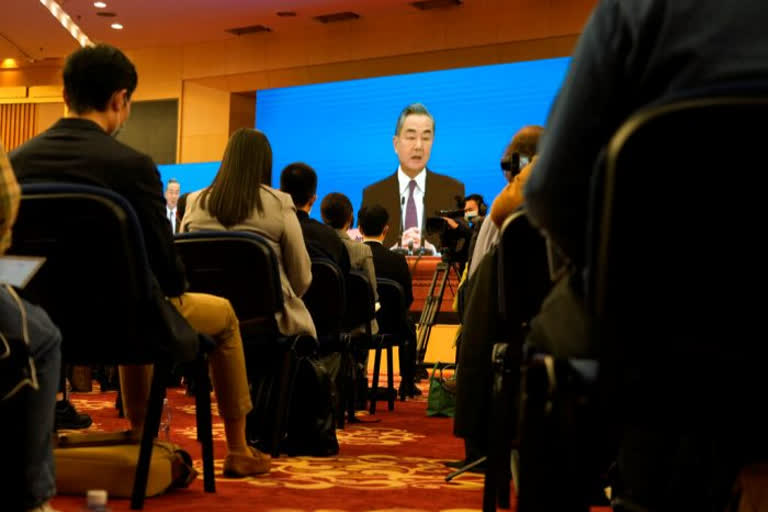Beijing: China's Foreign Minister on Monday called Russia, Beijing's "most important strategic partner," amid its continued refusal to condemn the invasion of Ukraine. Wang Yi said ties with Moscow constituted "one of the most crucial bilateral relationships in the world."
China has broken with the U.S., Europe, and others that have imposed sanctions on Russia after its invasion of Ukraine. Beijing has said sanctions create new issues and threaten a political settlement of the conflict. "No matter how perilous the international landscape, we will maintain our strategic focus and promote the development of a comprehensive China-Russia partnership in the new era," Wang told reporters at a news conference on the sidelines of the annual meeting of China's ceremonial parliament. "The friendship between the two peoples is ironclad," he added.
Much attention has been paid to a meeting between Chinese leader Xi Jinping and President Vladimir Putin in Beijing on Feb. 4, after which a joint statement was issued affirming "strong mutual support for the protection of their core interests." Russia endorsed China's view of self-governing Taiwan as an "inalienable part of China, and opposes any forms of independence of Taiwan," while China backed Russia in opposing the further enlargement of NATO.
Since then, Xi's government has refused to criticize the Russian invasion but tried to distance itself from Putin's war by calling for dialogue and the respect of national sovereignty. That prompted suggestions Putin failed to tell the Chinese leader his plans before their February statement. Along with denouncing trade and financial sanctions on Moscow, Beijing says Washington is to blame for the conflict for failing to take Russia's security concerns into consideration.
During an hour-long phone conversation with U.S. Secretary of State Antony Blinken on Saturday, Wang said China opposes any moves that "add fuel to the flames" in Ukraine. Chinese state-controlled media outlets were told to post only pro-Russian content and to censor anti-Russian or pro-Western views, according to a copy of instructions that appeared on the social media account of the newspaper Beijing News. The post was later deleted.
On Friday, a translation by state TV of remarks by the head of the International Paralympic Committee during the opening ceremony of the Beijing Winter Paralympics skipped portions that expressed horror about the war in Ukraine and called for peace. Online and in Chinese social media, expressions of sympathy for Ukraine and support for Russia appear but not criticism of Moscow.
The state-run newspaper Capital News appeared to support Putin's demand that Ukraine become a neutral buffer between Russia and Europe and give up the possibility of NATO membership. "Ukraine should be a bridge between East and West, rather than a frontier of confrontation between major powers," Capital News said.
The most senior Chinese leaders have avoided mentioning the war in public. On Saturday, Premier Li Keqiang, the No. 2 leader, indirectly acknowledged its impact, saying prices of oil, wheat and other commodities are high and "prone to fluctuation," but gave no indication why.
Li said global conditions were "increasingly volatile." Later on Saturday, Blinken expanded on his phone conversation with Wang in remarks with CNN's Jake Tapper.
"China speaks often about the sanctity of this principle of sovereignty," Blinken said, adding that he told Wang that now one of the U.N. Security Council's permanent members, Russia, was "violating that very principle." "So we are looking to China to make its voice heard. That voice counts, and I hope that they'll do that," Blinken said.
AP



